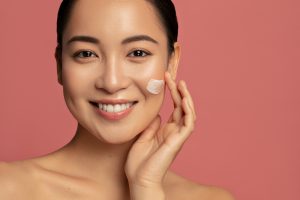 Our skin is the largest and one of our most important organs. It helps to prevent several external threats such as bacteria from entering the body and excessive amounts of water from leaving the body.
Our skin is the largest and one of our most important organs. It helps to prevent several external threats such as bacteria from entering the body and excessive amounts of water from leaving the body.
There are three layers of protection that make up our skin. The first or outermost layer is called the epidermis, the second layer is called the dermis, and the third is the hypodermis.
The epidermis acts as our protective barrier —our first line of defense. Without its protection, harmful toxins, irritants, and other substances could penetrate our skin. This layer of skin also helps to retain moisture and keep us hydrated.
Damage to the skin’s barrier could lead to several health problems including infections, inflammation, dryness, sensitivity, redness, acne, or premature aging.
Given the importance of the skin’s barrier to our health, it is important that we take good care of it. Here are 10 ways we can achieve this:
- Apply sunscreen daily
- Remove impurities by gently cleansing the skin (avoid using cleansers that contain sulfates)
- Avoid using harsh chemicals on the skin such as retinoids for extended periods
- Use plant oils such as coconut oil or almond oil to replenish the skin barrier
- Use products that include ceramides and humectants
- Use moisturizers that include hyaluronic acid
- Avoid long hot baths or showers
- Avoid over-washing and over-scrubbing skin
- Drink daily recommended amounts of water
- Eat healthy foods
To maintain the health of our skin’s barrier, most dermatologists recommend a simple care routine that involves gently cleansing the skin morning and night and using moisturizers that are rich in active ingredients such as glycerin, ceramides, or hyaluronic acid.
If you are experiencing skin damage for a prolonged time, it is best to see a dermatologist to assess the root of the problem and determine the appropriate course of treatment. Your doctor may recommend removing certain products from your skin routine, using simple but effective products, or making lifestyle changes.
All content of this newsletter is intended for general information purposes only and is not intended or implied to be a substitute for professional medical advice, diagnosis or treatment. Please consult a medical professional before adopting any of the suggestions on this page. You must never disregard professional medical advice or delay seeking medical treatment based upon any content of this newsletter. PROMPTLY CONSULT YOUR PHYSICIAN OR CALL 911 IF YOU BELIEVE YOU HAVE A MEDICAL EMERGENCY.
